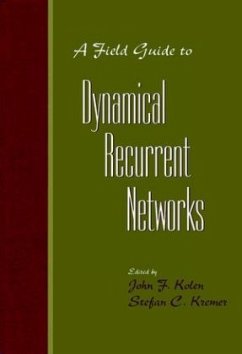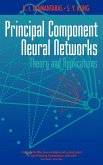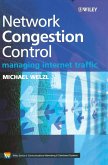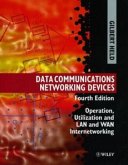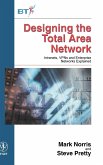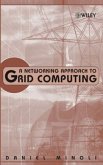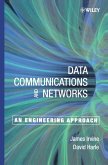"FIELD GUIDE TO DYNAMICAL RECURRENT NETWORKS
Acquire the tools for understanding new architectures and algorithms of dynamical recurrent networks (DRNs) from this valuable field guide, which documents recent forays into artificial intelligence, control theory, and connectionism. This unbiased introduction to DRNs and their application to time-series problems (such as classification and prediction) provides a comprehensive overview of the recent explosion of leading research in this prolific field.
A Field Guide to Dynamical Recurrent Networks emphasizes the issues driving the development of this class of network structures. It provides a solid foundation in DRN systems theory and practice using consistent notation and terminology. Theoretical presentations are supplemented with applications ranging from cognitive modeling to financial forecasting.
A Field Guide to Dynamical Recurrent Networks will enable engineers, research scientists, academics, and graduate students to apply DRNs to various real-world problems and learn about different areas of active research. It provides both state-of-the-art information and a road map to the future of cutting-edge dynamical recurrent networks.
About the Editors
John F. Kolen has explored the computational capabilities of dynamical recurrent networks on a wide range of projects: computer tomography of ballistic tests, autonomous science on extraterrestrial sensor platforms, and laser marksmanship modeling. His research interests include neural networks, distributed processing, philosophy of computation, and computer gaming. Dr. Kolen is a member of the Institute for Human and Machine Cognition at the University of West Florida.
Stefan C. Kremer's research interests include connectionist networks (the subject of his 1996 thesis A Theory of Grammatical Induction in the Connectionist Paradigm), genetic algorithms, signal processing, grammar induction, and image processing. He is an assistant professor of computing and information science at the University of Guelph, Ontario, Canada, and is a founding member of the Guelph Natural Computation Research Group."
Hinweis: Dieser Artikel kann nur an eine deutsche Lieferadresse ausgeliefert werden.
Acquire the tools for understanding new architectures and algorithms of dynamical recurrent networks (DRNs) from this valuable field guide, which documents recent forays into artificial intelligence, control theory, and connectionism. This unbiased introduction to DRNs and their application to time-series problems (such as classification and prediction) provides a comprehensive overview of the recent explosion of leading research in this prolific field.
A Field Guide to Dynamical Recurrent Networks emphasizes the issues driving the development of this class of network structures. It provides a solid foundation in DRN systems theory and practice using consistent notation and terminology. Theoretical presentations are supplemented with applications ranging from cognitive modeling to financial forecasting.
A Field Guide to Dynamical Recurrent Networks will enable engineers, research scientists, academics, and graduate students to apply DRNs to various real-world problems and learn about different areas of active research. It provides both state-of-the-art information and a road map to the future of cutting-edge dynamical recurrent networks.
About the Editors
John F. Kolen has explored the computational capabilities of dynamical recurrent networks on a wide range of projects: computer tomography of ballistic tests, autonomous science on extraterrestrial sensor platforms, and laser marksmanship modeling. His research interests include neural networks, distributed processing, philosophy of computation, and computer gaming. Dr. Kolen is a member of the Institute for Human and Machine Cognition at the University of West Florida.
Stefan C. Kremer's research interests include connectionist networks (the subject of his 1996 thesis A Theory of Grammatical Induction in the Connectionist Paradigm), genetic algorithms, signal processing, grammar induction, and image processing. He is an assistant professor of computing and information science at the University of Guelph, Ontario, Canada, and is a founding member of the Guelph Natural Computation Research Group."
Hinweis: Dieser Artikel kann nur an eine deutsche Lieferadresse ausgeliefert werden.

